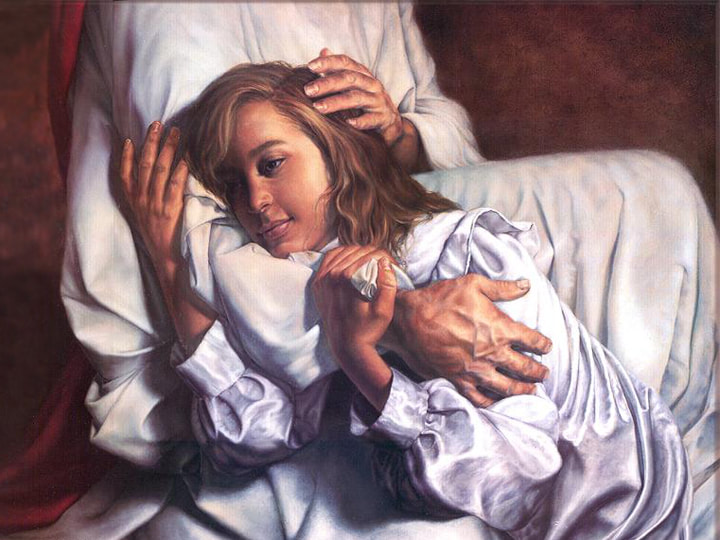|
Tragedy is inevitable. Let’s learn from the Lazarus’ story (John 11:1-53).
“Lord, the one you love is sick,” Martha and Mary, Lazarus’ sisters, told Christ, but still He waited for two days before going over (v6). When He arrived, Lazarus was already dead for days, and they questioned Christ for not coming sooner. To Mary’s question, Christ wept. He knew He would raise Lazarus from the dead (v4), yet He cried (v35). Christ weeps with those who weep because He feels our pain. To Martha’s same question, Christ didn’t console, but told her, “I am the resurrection and the life” (v25). He taught her the truth: He is the life, and He would make everything new, with no more death. Christ was also deeply moved with indignation (v33, 38). The original Greek word means “filled with rage and anger.” Christ wasn’t angry at others, such as the Samaritans or “Muslims,” or at Himself. He wasn’t angry at Lazarus. When Job was suffering, Job’s friends accused him of sinning, leading to God’s punishment. Don’t make assumptions about God’s intention based on your immediate circumstances. A smooth life could be a result of God giving us over to our bad desires. If we stay proud and stupid, we will perish (Romans 1:24-32). Christ warned that victims of a political massacre or a falling tower weren’t worse people than others (Luke 13:1-5). Remember that Christ lived perfectly but suffered terribly. We shouldn’t assume that our immediate circumstances are a direct reflection on God’s approval or disapproval of us. In Lazarus’ story, Christ’s anger might be for death at the tomb (v38). Then, He brought Lazarus back to life. Christ’s action led to the Pharisees plotting to kill Him (v53). Christ fixed their problem, yet He soon would be facing a much bigger one. In our life, there will be tragedy. When tragedy strikes, grieve, but grieve with hope (1 Thessalonians 4:13). Express your anger against the tragedy. Lay your pain and suffering before Christ. Our God will weep with us and teach us the truth. He is the resurrection and the life. Because of His blessings, He will make everything new and right again. Summarized from a Tim Keller’s sermon, “Truth tear anger grace.” https://gospelinlife.com/downloads/truth-tears-anger-and-grace-5247/ 悲剧中的泪水、真理、愤怒和祝福 悲剧是不可避免的。让我们从拉撒路的故事中学习这点(约翰福音11:1-53)。 拉撒路的姐妹马大和玛丽亚告诉基督“拉撒路病了”,但祂等了兩天才前去探望他们(约翰福音11:6)。当祂到达时拉撒路已经死了。她们质疑基督为什么没有早点过来。 基督面对马利亚的质疑哭了。虽然知道自己将使拉撒路复活(约翰福音11:4),祂还是哭了(约翰福音11:35),因为祂感受到他们的痛苦,与那些悲伤的人一同哭泣。 基督对于马大的同样问题却没有安慰她,而是告诉她“复活在我,生命也在我”(约翰福音11:25)。基督在教导马大真理:祂就是生命。祂要将一切都更新,不再有死亡。 基督与此同时也心里悲忿(约翰福音11:33,38)。这里原版希腊词的意思是“充满了忿怒”。 基督并没有对其他人生气,比如撒玛利亚人、穆斯林人或祂自己。基督也没有对拉撒路生气。 当约伯受苦时,朋友们控告他因为犯罪导致受到上帝的惩罚。 不要根据当前情况判断上帝的心意。平稳的生活也许是上帝让一个人被他的欲望操纵, 任凭他偏行己路。然而,骄傲和愚妄之路最终通向灭亡(罗马书1:24-32)。 基督警告说那些死于政治屠杀和死于塔倒在身上的人,并没有比其他人犯更重的罪(路加福音13:1-5)。记住基督在世活出了完美的生命,但仍然遭受极大的痛苦。所以,不要认为当前的情况就是上帝喜悦我们与否的反映。 在拉撒路的故事中,基督也许是对坟墓前的死亡而忿怒(约翰福音11:38)。 基督随后使拉撒路复活了。法利赛人为此策划杀害祂(约翰福音11:53)。基督解决了他们(马大和玛丽亚)的问题,然而祂不久将面对更大的挑战。 人生中定会经历苦难。悲剧临到时悲伤吧,但应带着盼望来悲伤(帖撒罗尼迦前书4:13)。 面对苦难表达愤怒吧,但应将痛苦放在基督面前。上帝将与我们一同哭泣,教导我们真理。复活在祂,生命也在祂, 祂的赐福会使一切都更新而美好。
0 Comments
Leave a Reply. |
Categories
All
|
Proudly powered by Weebly
